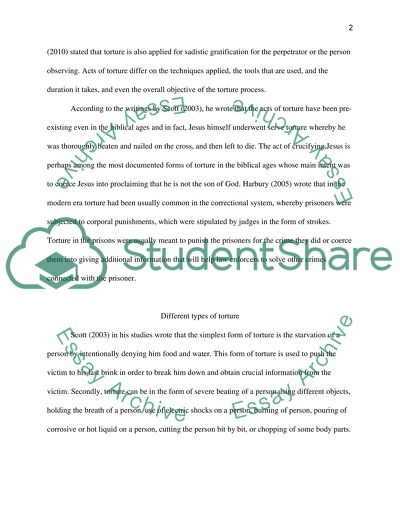Cite this document
(“Can torture ever be acceptable in democratic civilized society Essay”, n.d.)
Retrieved from https://studentshare.org/history/1478551-can-torture-ever-be-acceptable-in-democratic
Retrieved from https://studentshare.org/history/1478551-can-torture-ever-be-acceptable-in-democratic
(Can Torture Ever Be Acceptable in Democratic Civilized Society Essay)
https://studentshare.org/history/1478551-can-torture-ever-be-acceptable-in-democratic.
https://studentshare.org/history/1478551-can-torture-ever-be-acceptable-in-democratic.
“Can Torture Ever Be Acceptable in Democratic Civilized Society Essay”, n.d. https://studentshare.org/history/1478551-can-torture-ever-be-acceptable-in-democratic.


